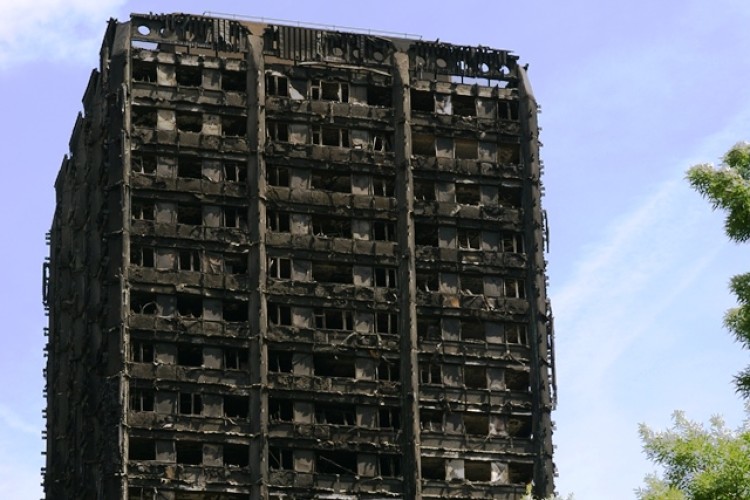With every cladding panel tested by the BRE failing combustibility checks – currently 181 out of 181, from multiple manufacturers – there has been criticism of the testing process.
Questions have been asked, such as: Surely the testing programme must be flawed? Why don’t they consider the fire retardant properties of the whole building envelope, including the insulation, and not just the outer panel? How could the construction industry and local authorities have conspired to put up so many death traps around the country?
The testing process is seeking to identify whether the filler material in aluminium composite material (ACM) submitted for testing is of a type that would meet the limited combustibility requirements of current Building Regulations guidance.
Communities secretary Sajid Javid has responded to criticism of the cladding testing programme by commissioning outsiders to check the validity of the tests. And it’s not good news.
Mr Javid told the House of Commons: “We ourselves have asked questions about the testing regime after discovering the 100% failure rate so far. Last week I asked for the testing regime to be independently assessed. This was carried out by the Research Institutes of Sweden, and they have confirmed they believe the process to be sound.”
He added: “Every failed test means the panels are unlikely to be compliant with the limited combustibility requirement of the building regulations guidance. This has been confirmed by legal advice and the advice of the independent expert panel that was established last week. For use of the panels to be safe landlords need to be confident that the whole wall system has been tested and shown to be safe.
“We are not aware of any such system having passed the necessary tests, but I have asked the expert advisory panel to look into this further.”
Meanwhile the BRE is continuing to test the combustibility of cladding from councils and housing associations, as well as private landlords. The government’s primary concern has been buildings over 18 metres, or six storeys, where people stay at night. Hospitals and schools are also being assessed.

Mr Javid said: “It’s obviously disturbing that there are such a large number of buildings with combustible cladding, and the priority now is to make those buildings safe.
“Where appropriate mitigating measures cannot be implemented quickly landlords must provide alternative accommodation while the remedial work is carried out, and that is exactly what happened in the four tower blocks in Camden.
Shadow communities secretary challenged Mr Javid on the testing process. He said: “The government are testing only one component of the cladding—not the panels, adhesives and insulation; not the cladding as a composite system; and not the installation method or impact on the buildings. All those things can affect fire-safety qualities. Importantly, will he confirm that cladding is not the whole story? We know that from the two coroners’ reports after the previous fires at Shirley Towers and Lakanal House, four years ago.”
Mr Javid responded: “The core of the panel is being tested. It is possible to conduct whole-system tests. That is not the test that is currently being conducted by the BRE, but the expert panel is meeting again today to advise how things can be done appropriately so that we are convinced that a whole-system test actually works and leads to a positive result. So far though, as I said in my statement, we have yet to see any evidence showing that any builder has passed the whole-system test.”
The Construction Index Comment
It is clear that a full review of Building Regulations is now inevitable. Sajid Javid himself says “it is already clear to us all that there will need to be changes”. Product certification procedures must also be looked at. There needs to be a much clearer pan-industry understanding of what is and what is not to be allowed. We have to assume that those who put up ACM cladding on 181 high rise building across the country, and those who authorised its use, genuinely believed that the product was fit for purpose and legal. They are now hearing that they were wrong about that.
Conservative governments instinctively want to sweep away regulations – an approach that had been supported by many in the construction industry. It is argued that prescriptive regulations stifle innovation and engineering creativity; better to specify outcome and performance rather than input and method, the philosophy goes. However, if prosecutions are to follow the Grenfell Tower blaze, there will be those who had wished that the regulations had been rather clearer and rather more prescriptive in the first place.
The death of 80+ people in the Grenfell Tower fire has proved that the construction industry is incapable of self-regulation. It needs, and should now welcome, a few more rules and regulations.
Got a story? Email news@theconstructionindex.co.uk



